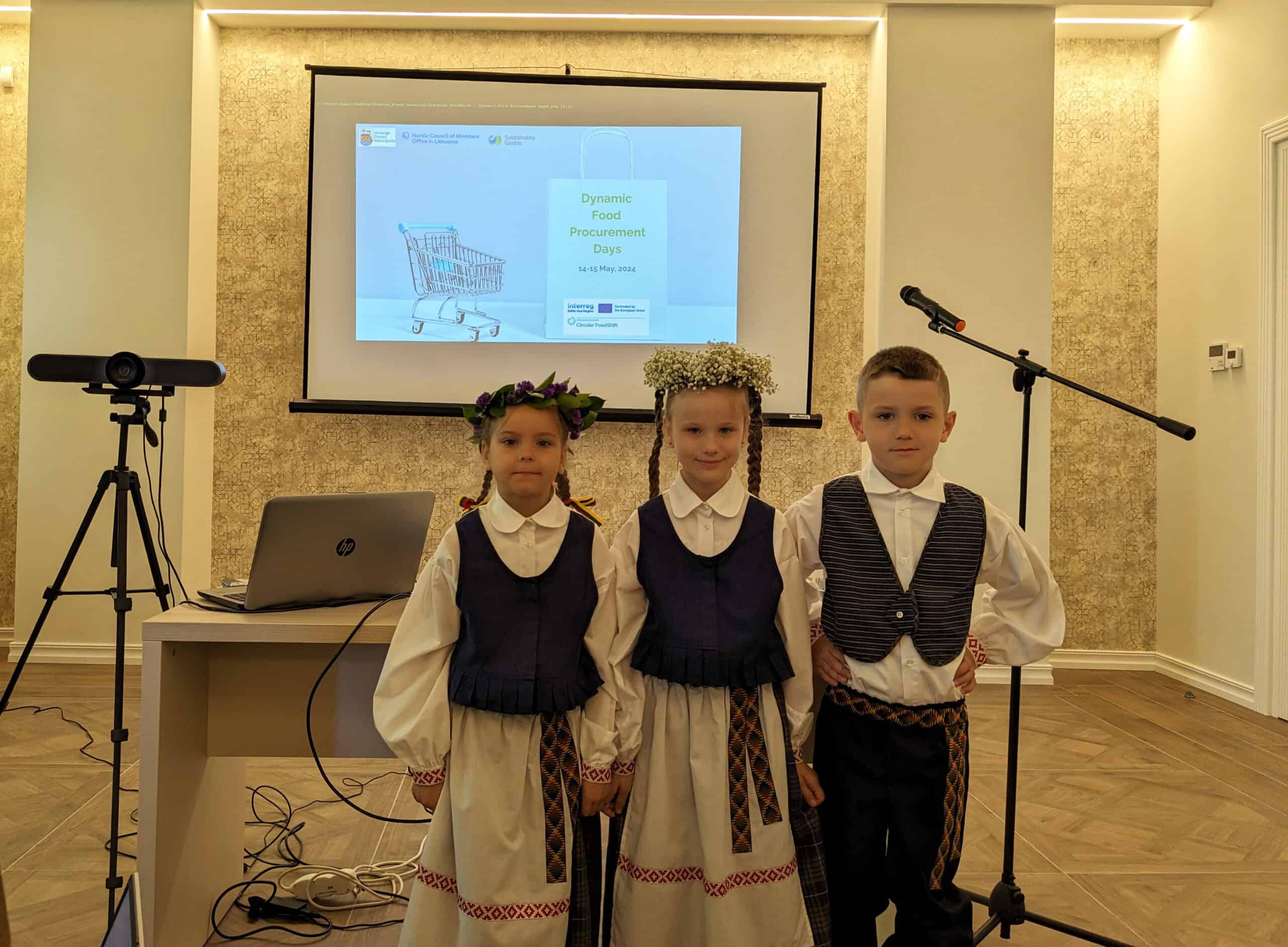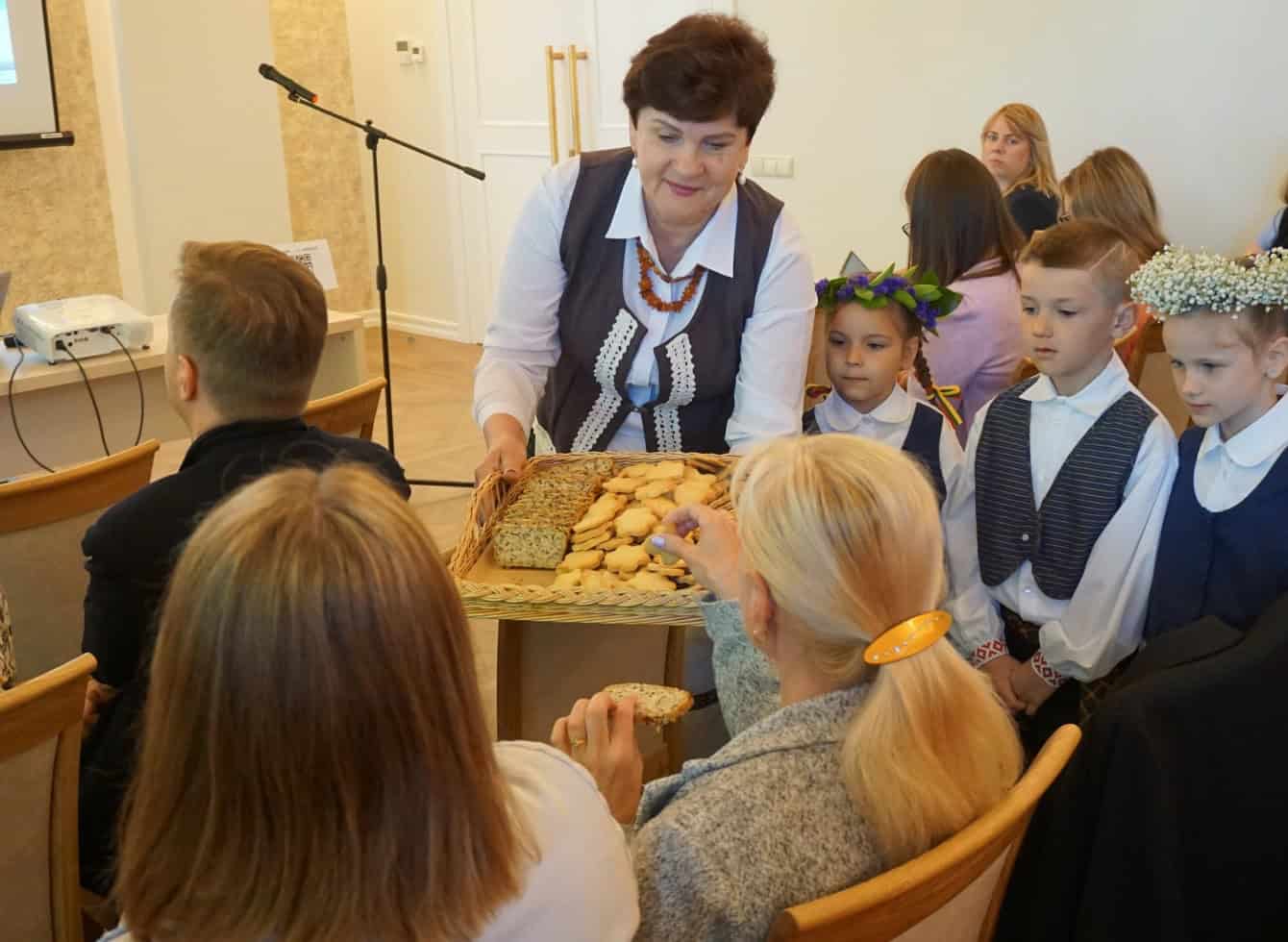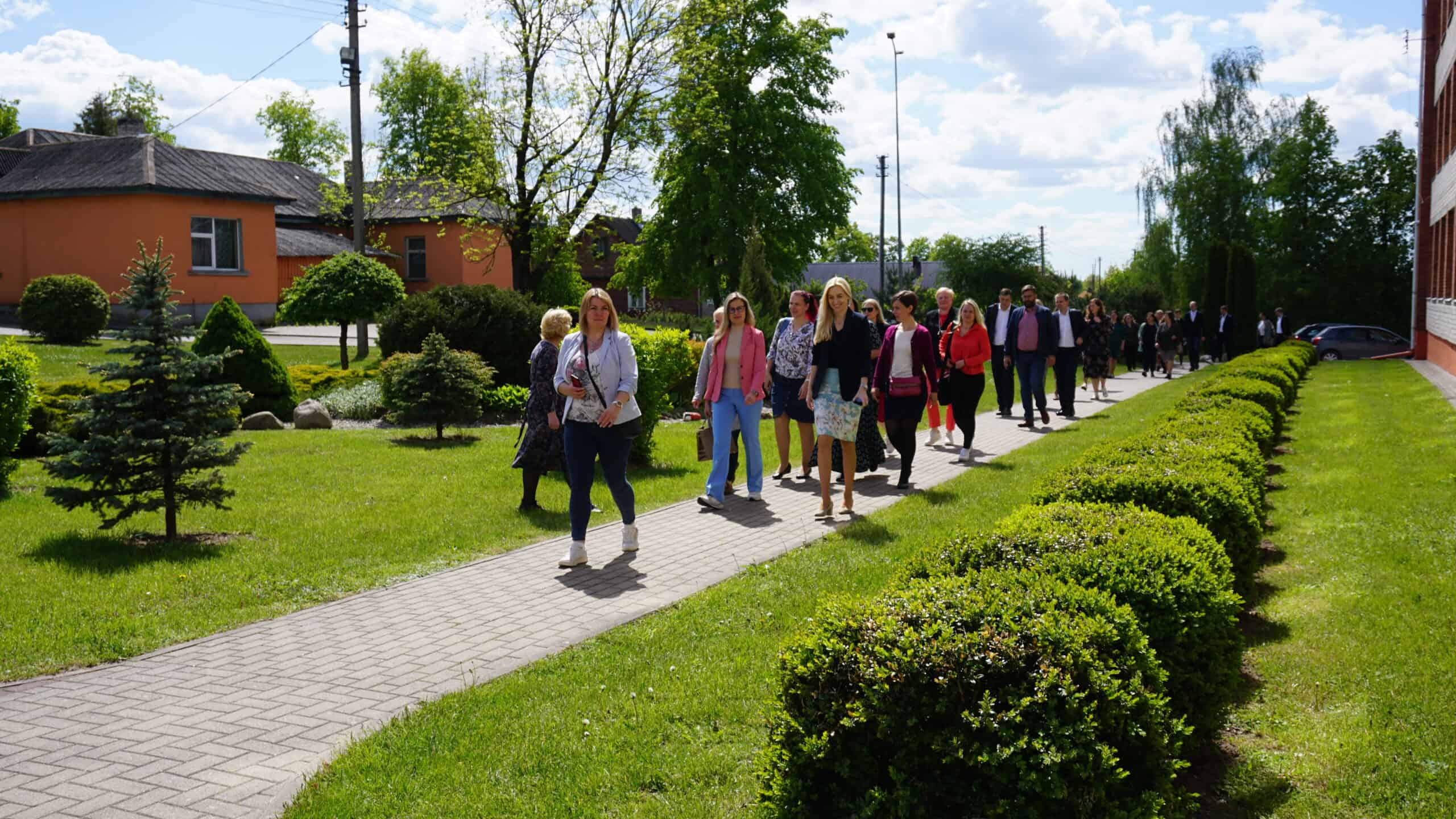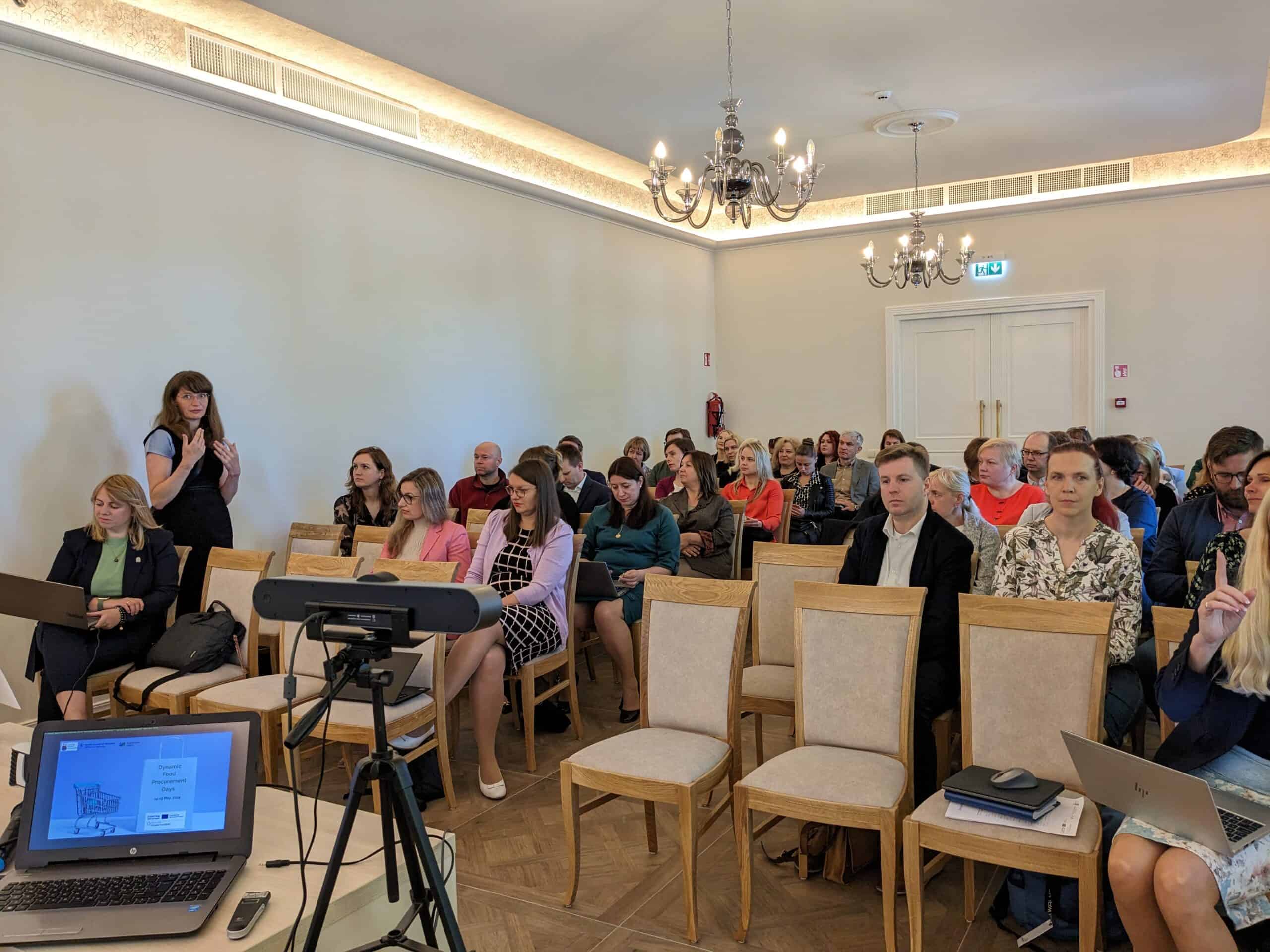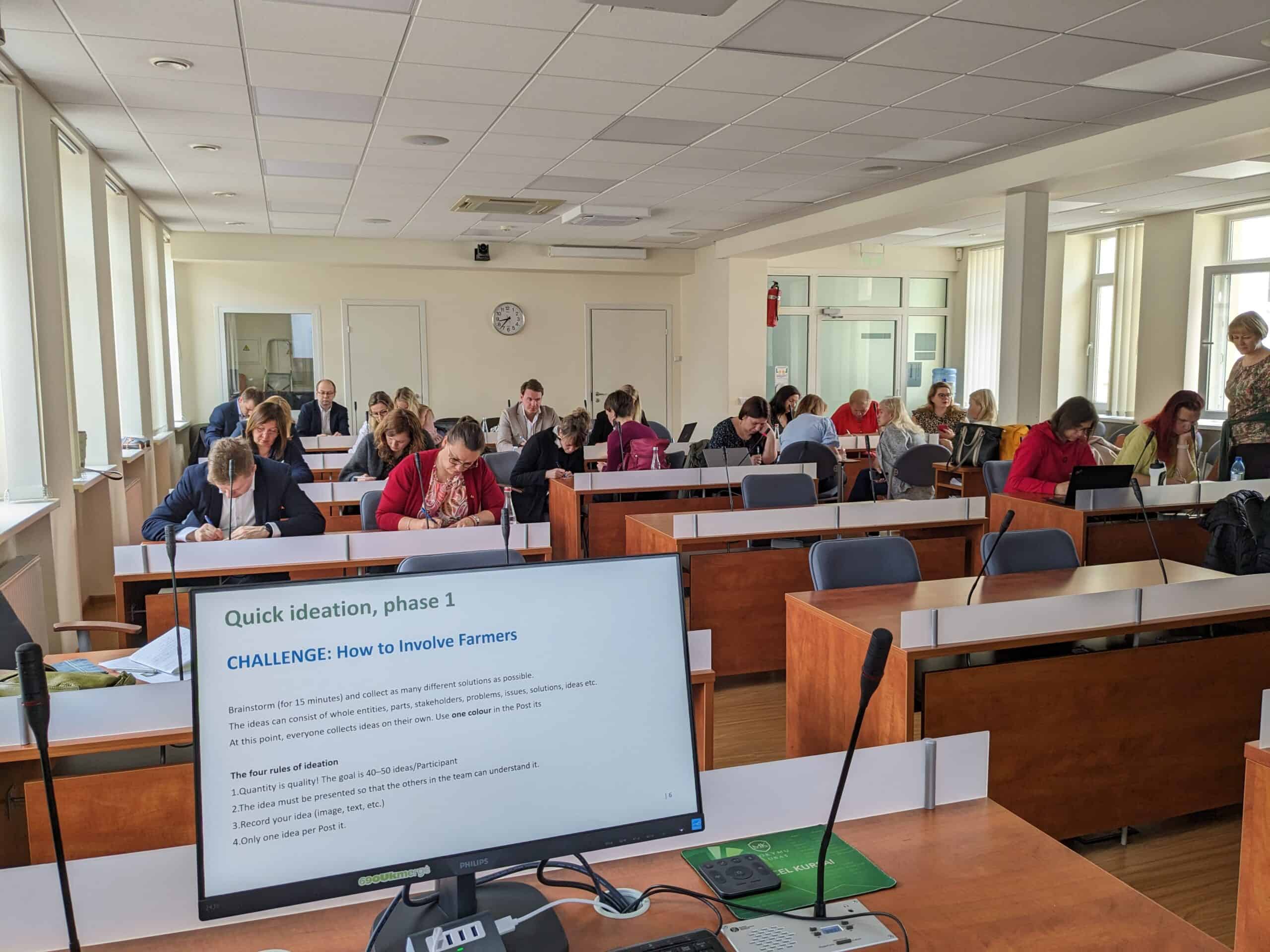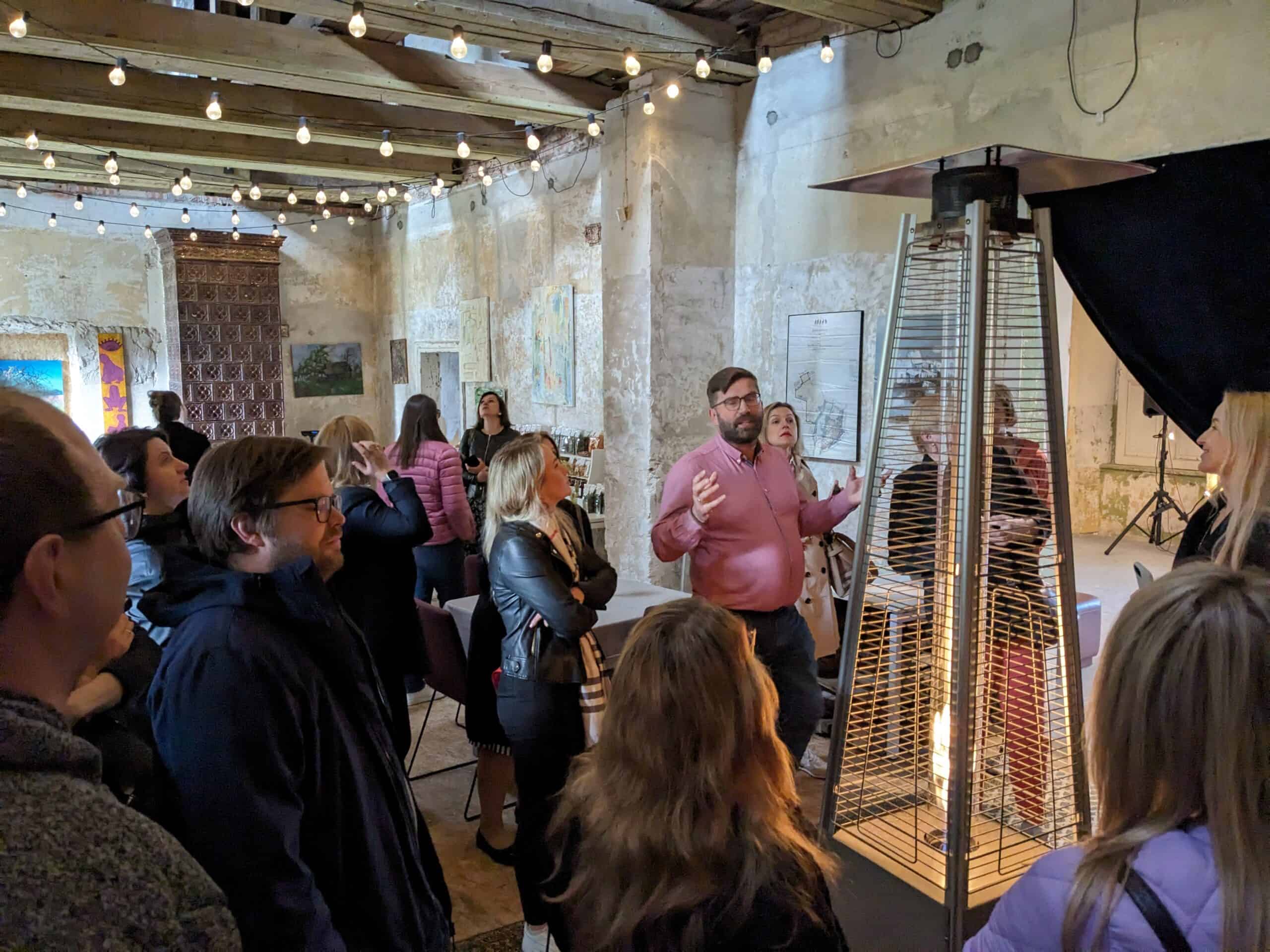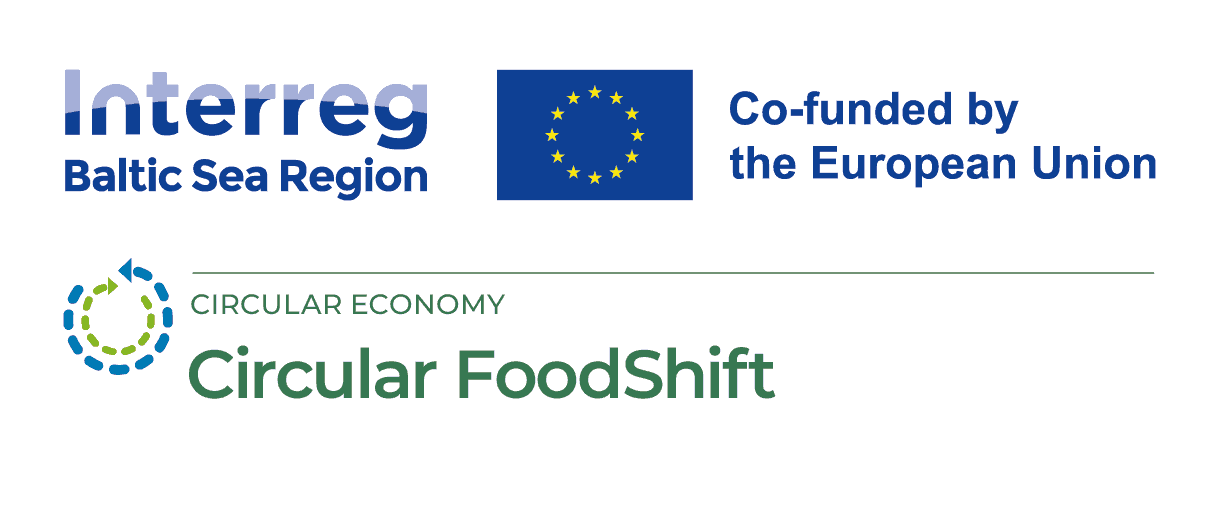
News from Lithuania: First Dynamic Food Procurement days in Ukmergė
03 June 2024
On May 14-15, procurement specialists, farmers, municipality representatives and more from Lithuania, Latvia, Estonia, Finland and Sweden gathered in Ukmergė, a city in Vilnius County. It was days filled with inspiration and learning, discussing innovative solutions to common obstacles in the current short supply chain procurement, and to find practical ways to increase the cooperation between procurer and local farmers.
What is the dynamic procurement model?
A dynamic purchasing system (DPS) is a model of procurement which operates on an open market meaning suppliers can join at any time, subject to a qualification stage, or if bids close, they will re-open frequently so new suppliers can consistently be onboarded. It is used by contracting authorities for standardised purchases including food products, and DPSs are fully electronic.
The procurement process takes place digitally, via electronic platforms, through which food suppliers, such as small-scale farmers and SMEs, can sell products directly to consumers and contracting authorities. Larger tenders are broken into smaller lots for which small-scale food producers can bid electronically. The system dynamically adjusts to seasons and produce availability because it is managed directly by producers, and it allows for direct contact between producers and consumers.
Public procurement amounts to 14% of EU’s GDP (European Commission 2023) and is a powerful market force [1], which is why the potential of this tool to drive change towards more sustainable food systems should not be underestimated.
One important outcome of the “Dynamic Food Procurement days” was the increased capacity building in procurement systems and innovative solutions in the Baltic Sea Region countries. Among the participants, there was a big gap of knowledge on how the food procurement system works in the various countries, common challenges and what innovations are being piloted. The event activities were designed to increase knowledge and open up to identify common needs and discuss solutions.
To expand the cooperation with more regions and share and exchange good practises, procurement specialist from Vallentuna municipality also participated in the event. They are one of the first in Sweden on piloting a digital solution for short supply chains with local small farmers and food producers in the region. This will be later on available to all municipalities in Sweden.
In collaboration with project partners, and counting participants from more than 10 Baltic Sea Region cities, the aim is through cooperation, dedication and creativity, to adjust solutions to unique local contexts and provide support in practical ways for procurement specialists and smallholder farmers.






